How the SPEAK OUT! Therapy program at Northeastern helps Parkinson’s patients regain their voices
The program’s founder says Northeastern has gone the extra mile for Parkinson’s patients with new treatment and research center.
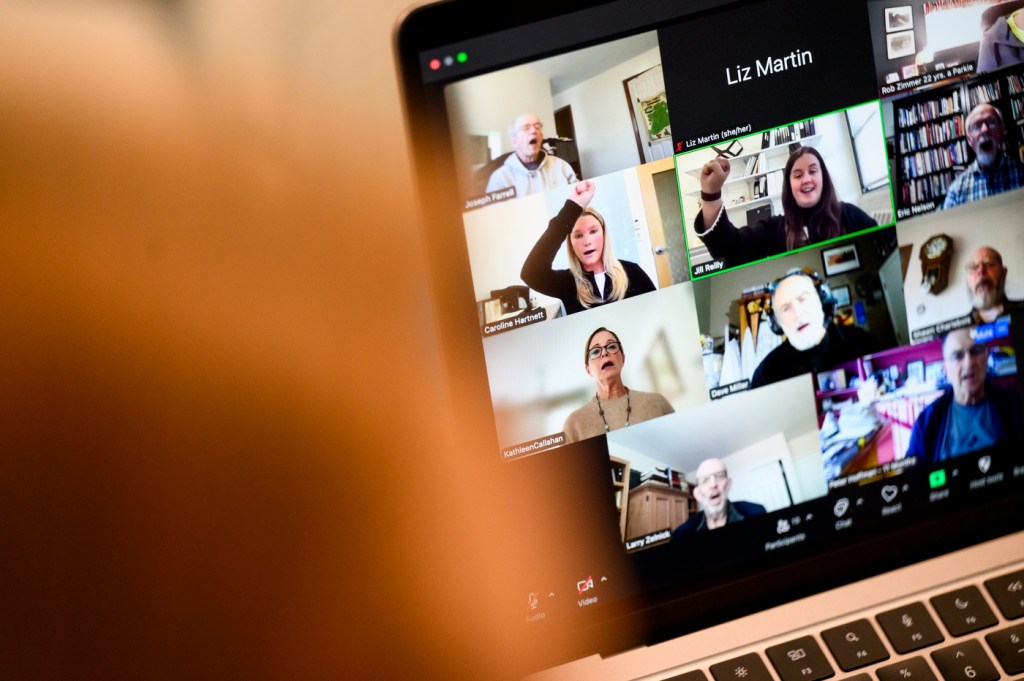
Losing his voice was one of the first symptoms that Dan Lowen experienced when he got Parkinson’s disease, a progressive disease of the nervous system affecting an estimated 1 million Americans.
“I was teaching classes online and I found that my voice was getting weaker and weaker. It got to the point where I couldn’t teach anymore,” Lowen said during an interview at Northeastern’s Speech-Language and Hearing Center.
Today Lowen is one of scores of Parkinson’s patients rediscovering their voices through the SPEAK OUT! Therapy & Research Center at Northeastern University.
Launched a year and a half ago with a grant from Parkinson Voice Project, it’s the only Parkinson Voice Project designated SPEAK OUT! Therapy & Research Center in Massachusetts.
According to Lowen, the therapy delivers “instant results.”
“I walked into a session with very little voice and walked out with a full voice again. It’s a phenomenal program,” Lowen said.
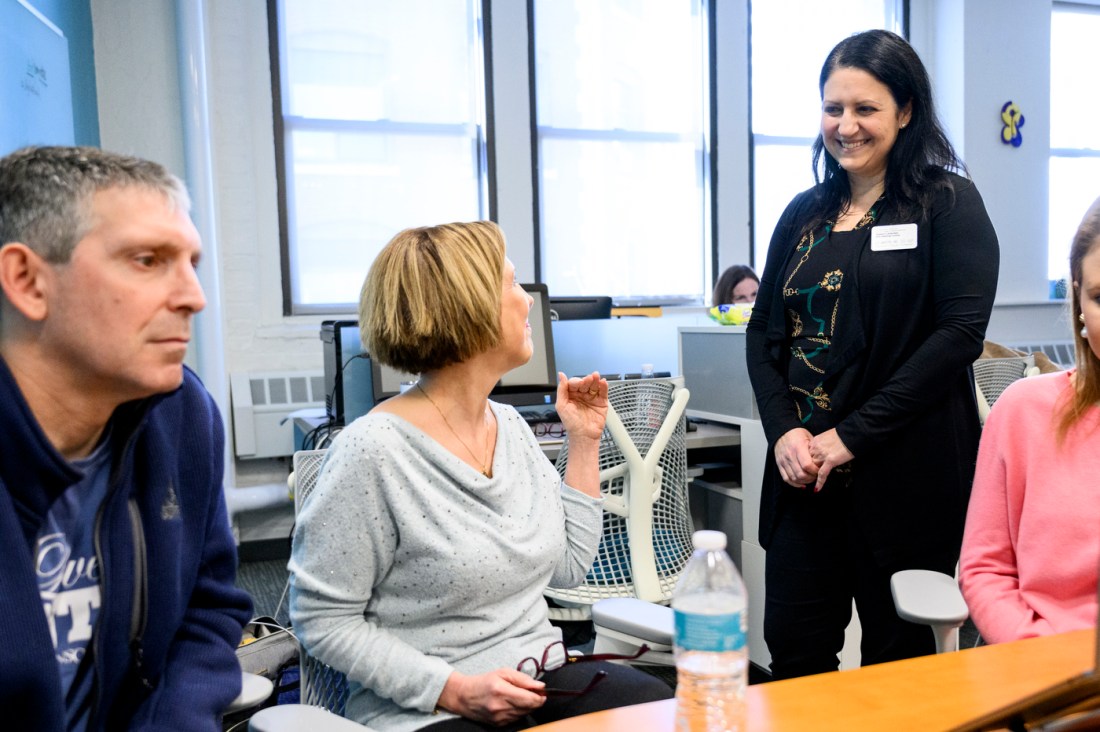
Parkinson’s patients enroll in a four-week program that provides individual SPEAK OUT! Therapy twice a week, mainly by Zoom but sometimes in person. After that they meet in groups once a week online.
“In our first 12 months as the Massachusetts SPEAK OUT! Therapy & Research Center, we conducted 333 individual treatment sessions with Parkinson’s patients and completed 31 evaluations for new patients,” said Elizabeth Martin, a clinical professor and center director.
“We also completed 25 refresher evaluations,” or six-month checkups, and ran two to three SPEAK OUT! Therapy groups weekly, year-round, she said.
The program is offered at no cost to patients, who also are offered free parking when they come to Northeastern’s Boston campus for therapy.
Making SPEAK OUT! Therapy accessible and ongoing are key to the success of the program, said Samantha Elandary, founder of Parkinson Voice Project, who visited Northeastern Wednesday.
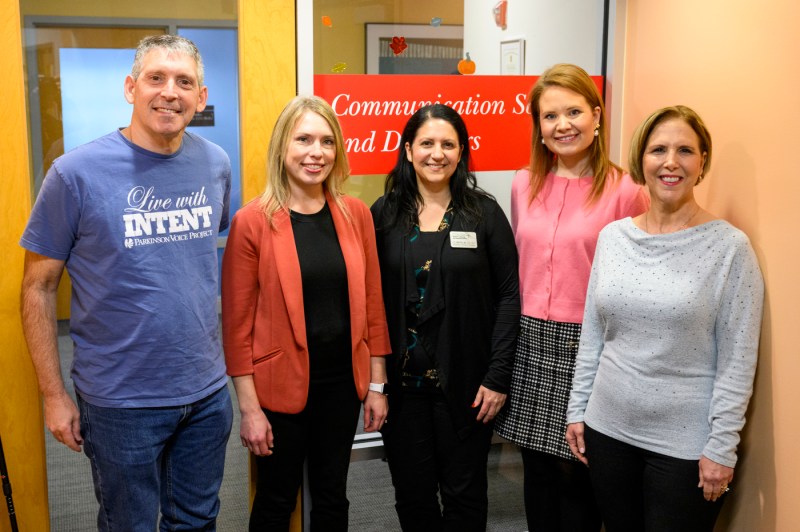
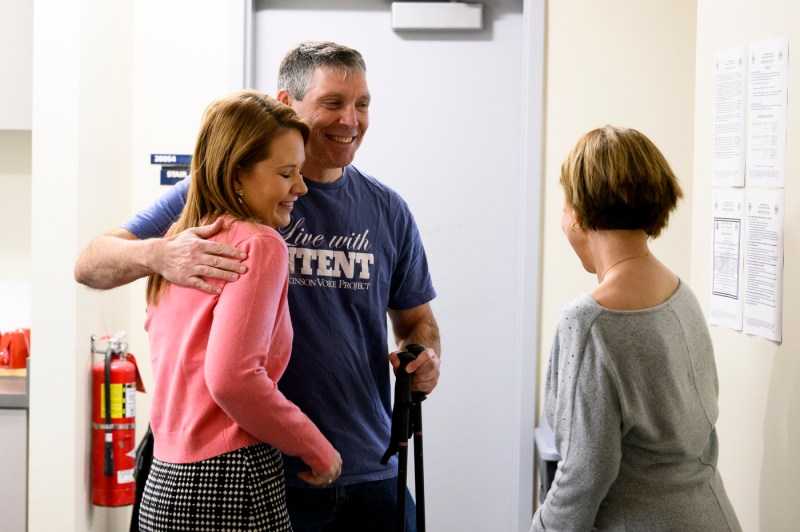
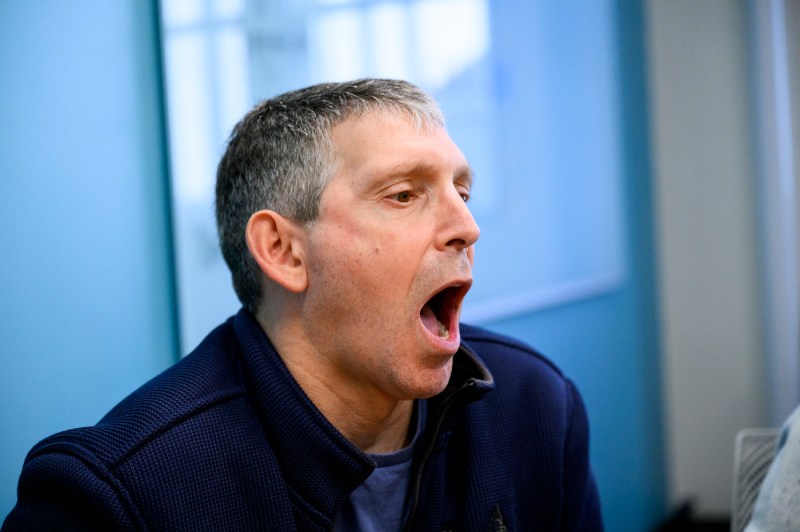
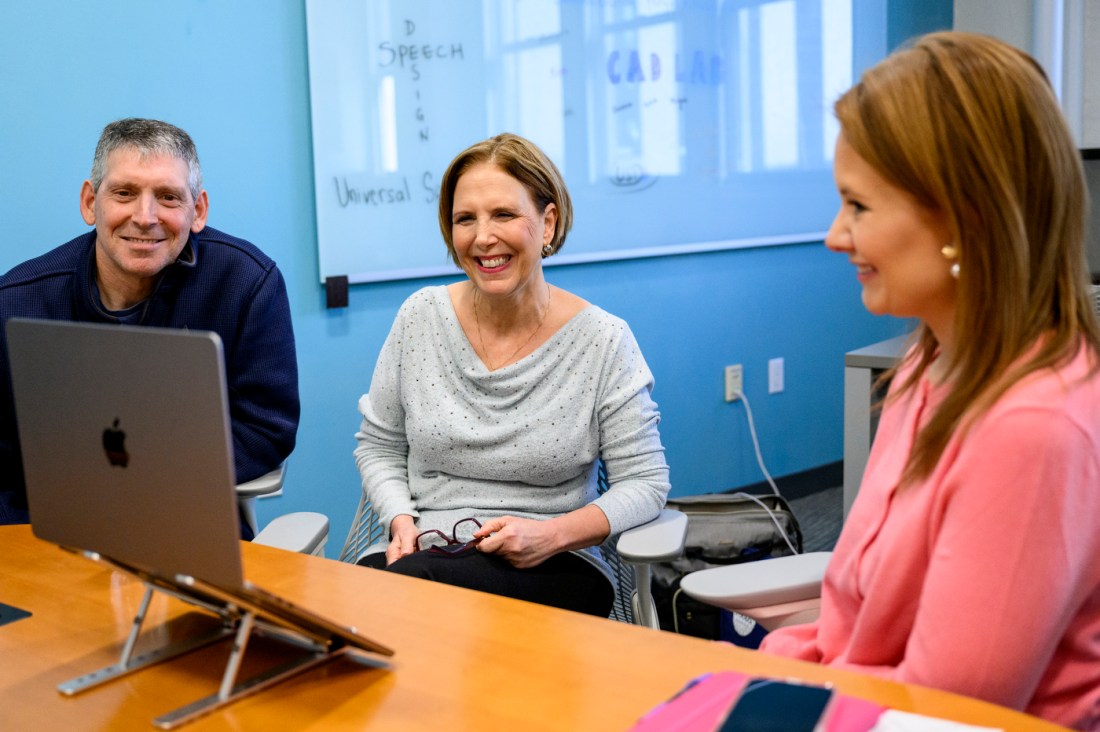
The therapy coaches patients on how to “speak with intent” and strengthen their voices as well as their ability to swallow.
“The muscles that we use for speaking are the muscles we use for swallowing,” Elandary said. Inability to swallow correctly has led to an aspiration pneumonia death rate of 70% for people with Parkinson’s, she said. “What we want to do is change that.”
Since speech-language pathologists are licensed by state, Elandary set out to establish therapy and research centers in every state of the union, with 26 currently up and running, including the Northeastern program and the Parkinson Voice Project in her home state of Texas.
Featured Posts
Elandary said Northeastern was a “wonderful fit” for the center.
Professors and graduate students at Northeastern’s Speech-Language and Hearing Center already were trained in SPEAK OUT! protocols prior to receiving a grant in 2023 to fund the therapy and research center through 2028.
“Over the years, they have proven not only their clinical skills but their compassion for people with Parkinson’s,” Elandary said.
During her visit, Elandary sat in on a group Zoom session with a dozen Parkinson’s patients led by Northeastern graduate students Caroline Hartnett and Jill Reilly, who had participants speak with intent as they counted out loud and did other vocal exercises together.
“The therapy is made up of very specific exercises,” Martin said. “There’s a certain way to present them, to model them and to provide cueing.”
“The whole goal is to have every single patient get to a point where they have what we call their best voice,” she says.
Research is also an important aspect of the center, said assistant professor Kristen Allison. It means “we’re able to do research on the real-world effectiveness of this therapy program.”
Patients going through the program get to see videos of themselves from the first and last treatment sessions, said graduate student clinician Isabelle Cotenoff. “It’s so clear to us and them how much they’ve improved.”
Parkinson’s patients need to keep up with the program to avoid relapse and are also encouraged to follow exercises at home.
“It’s something you really have to commit to and do every single day,” Lowen said.





